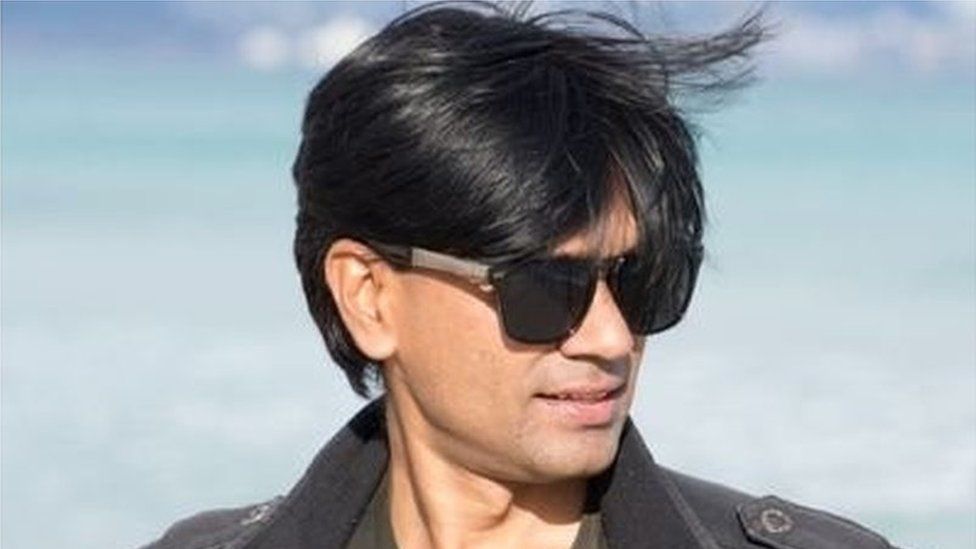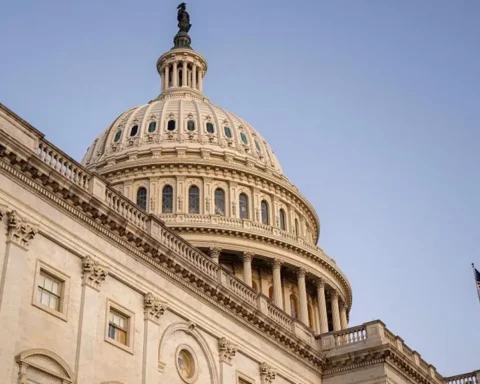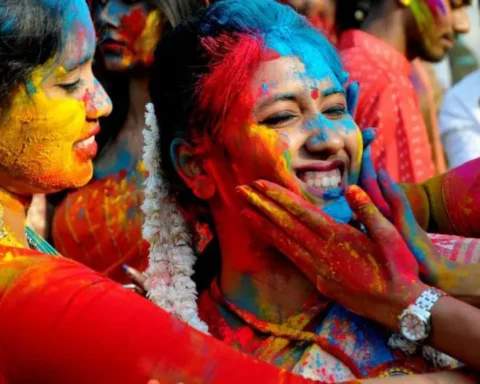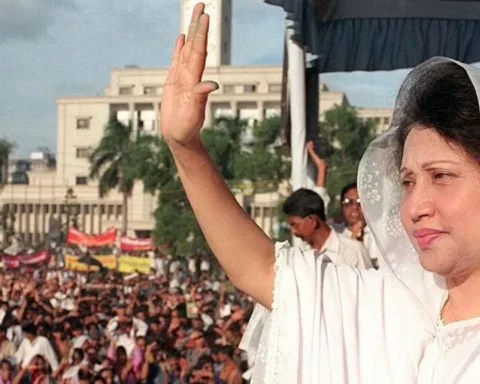For the past 10 days, India’s leading fact-checker and journalist Mohammed Zubair, who recently spotlighted the ruling party spokesperson Nupur Sharma’s controversial comments against the Prophet Muhammad, has spent most of his time shuttling between prisons and courts.
Since his arrest, he has been moved around by the police in and out of a courtroom in Delhi and then, as newer charges were piled on him, he was taken to a remote town on the India-Nepal border for investigations.
Delhi police arrested him on 27 June over a 2018 tweet for “insulting Hindu religious beliefs”. Later, they invoked other charges against him that included criminal conspiracy, destroying evidence and receiving foreign funds.
Days later, police in the northern state of Uttar Pradesh took over his custody. They accused him of using an “offensive term – hatemongers” to describe three Hindu religious leaders who were seen in videos engaging in hate speech, inciting violence against Muslims or threatening to rape Muslim women. On Friday, the Supreme Court granted him a five-day temporary bail in the case after hearing that he was facing death threats.
But the 39-year-old will remain in custody until he’s granted bail in the original case for which Delhi police have arrested him.
A telecoms engineer based in the southern city of Bangalore, Mr Zubair co-founded Alt News in 2017 with former software engineer Pratik Sinha to combat fake news.
Over the past five years, the website has played a key role in debunking claims that spread disinformation about religion and caste and unscientific myths.
With over 3,000 articles which have been viewed over 60 million times, Alt News has been in the crosshairs of the government pretty much from the time of inception in 2017 – especially because of its focus on fake videos and messages that target India’s minority Muslim community.
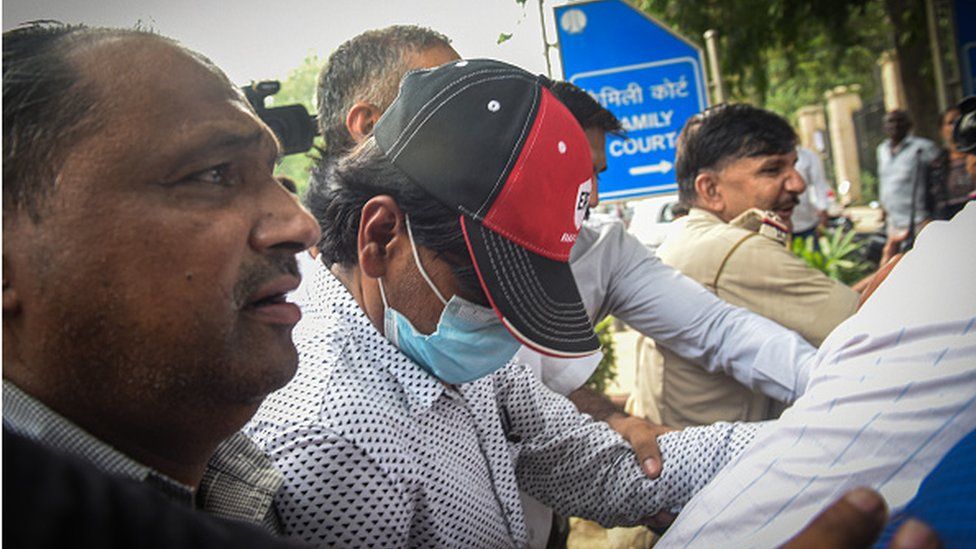
An expert at digital forensics, Mr Zubair is known for researching origins of unknown images and videos which are often misrepresented on social media and even by mainstream media.
It’s an unenviable job – hours spent sifting through photographs and videos of hate, violence, falsehood and propaganda.
Recently, he also started overseeing “UnHate” – a new Alt News project that documents hate speech.
Described as “a very determined and dedicated man” by those who know him, Mr Zubair is a prolific tweeter with more than half a million followers and is routinely trolled and abused by accounts claiming to be Hindu nationalists.
Days before his arrest, he posted e-mails from Twitter saying some of his tweets criticising Islamophobic comments by Hindu leaders were being “withheld” – which means they can’t be seen in India – on request from the law enforcement authorities.
In court, Mr Zubair has said that he has been arrested because of the work he does and because he’s a Muslim.
Supreme Court lawyer Colin Gonsalves, who represented Mr Zubair in the top court on Friday, told the BBC that there was no case against the fact-checker and that “he’s a thorn in the side for the government because he’s single-handedly taking on hate crimes”.
Police say they are also investigating dodgy foreign remittances in his bank account – an allegation he has denied.
Opposition leaders, journalists and activists have criticised Mr Zubair’s arrest, saying he’s being picked on for consistently calling out religious bigots and hatemongers.
The timing of his arrest, critics pointed out, was linked to his widely-shared tweet that highlighted Ms Sharma’s comments during a television debate in May-end.
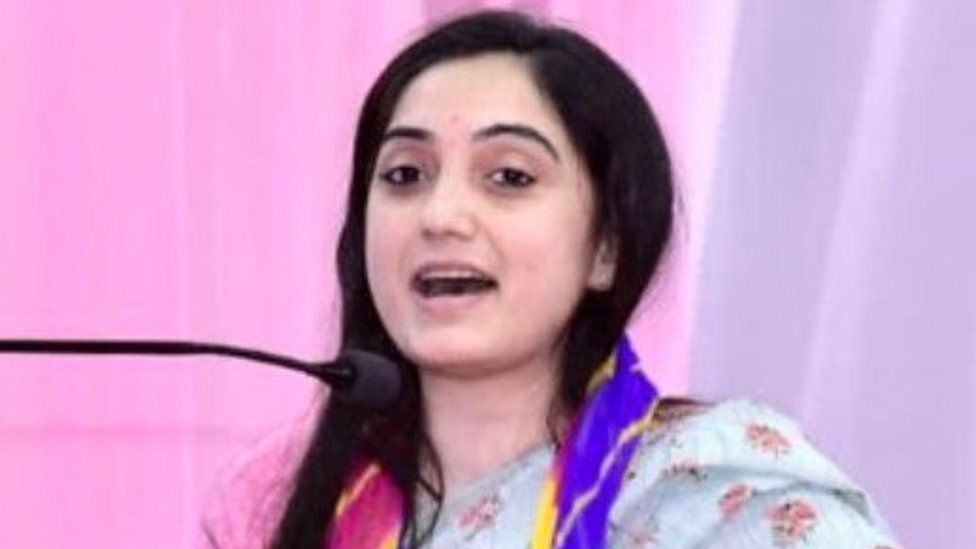
Her remarks incensed Indian Muslims and put the ruling Bharatiya Janata Party (BJP) government in a diplomatic tight spot, with several Muslim countries lodging strong protests with India.
As calls grew for Ms Sharma’s arrest, the BJP dropped her as their spokesperson, she went into hiding and police said they had tightened her security.
But supporters of Ms Sharma on social media soon began calling for Mr Zubair’s arrest after she blamed him for “inciting hatred against” her which had resulted in her receiving “rape and death threats” on Twitter.
Hashtags such as #arrestzubair began trending and exactly a month later, Delhi police called him to question him about a photograph he had posted of a man accused of molestation.
As the photograph showed a child sitting next to the man, the police said this could be a case under the stringent child sexual harassment law, POCSO. But the child’s photograph had been blurred as required by law.
Police then arrested him over a four-year-old tweet, commenting on the photograph of a hotel signboard, modified from ‘Honeymoon Hotel’ to ‘Hanuman Hotel’.
The complaint against him came from an anonymous Twitter account called Hanuman Bhakt, meaning worshipper of the monkey god Hanuman, who called Mr Zubair’s tweet a “direct insult” to Hindus.
The anonymous account, created last October, had just one follower at the time of the police complaint. Following the police complaint, it was deactivated, but has now been revived and has over 1,600 followers.
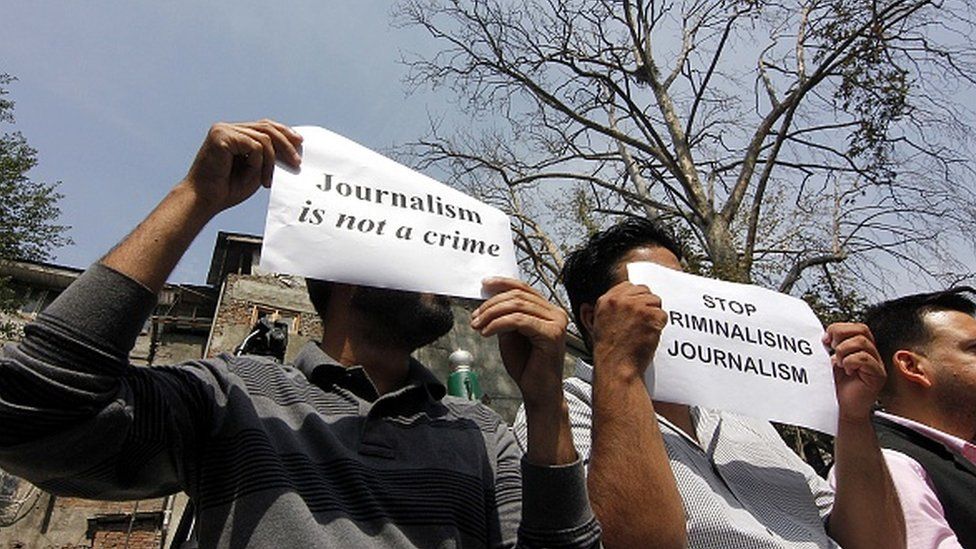
Many also questioned the motive behind the arrest after it became known that the photo was actually a screengrab from a 1983 Bollywood comedy by acclaimed director Hrishikesh Mukherjee.
In an editorial titled Theatre of the Absurd, The Hindu newspaper wrote that Mr Zubair “was being made to pay for drawing wide attention to Ms Sharma’s vile remarks” and described it as an instance of the government’s “characteristic intolerance and resentment towards fact-checkers who frequently expose its claims”.
International rights groups and the United Nations too have expressed concern over the arrest- a spokesperson for the UN chief Antonio Guterres recently said that “journalists should not be jailed for what they write, tweet, and say”.
And on Thursday, Germany too weighed in on the matter – a foreign ministry spokesperson said “journalists should not be persecuted and imprisoned for what they say and write”. India responded saying the case is being dealt with in courts and that such “uninformed comments are unhelpful and should be avoided”.
Critics say Mr Zubair’s is the latest in the long list of arrests of India’s best known activists, intellectuals and journalists and point to India’s plummeting ranking in the World Press Freedom Index. A recent report said “pressure had grown on the media to toe the Hindu nationalist government’s line” and “journalists that don’t do so are arrested and jailed”.
“Mr Zubair should be awarded a medal for his service to the nation. Instead, he’s been jailed,” says Mr Gonsalves. “His determinations shows that just one person can cause so much consternation to the hatemongers, imagine if there were 10 like him there? The hatemongers then would have nowhere to run.”

